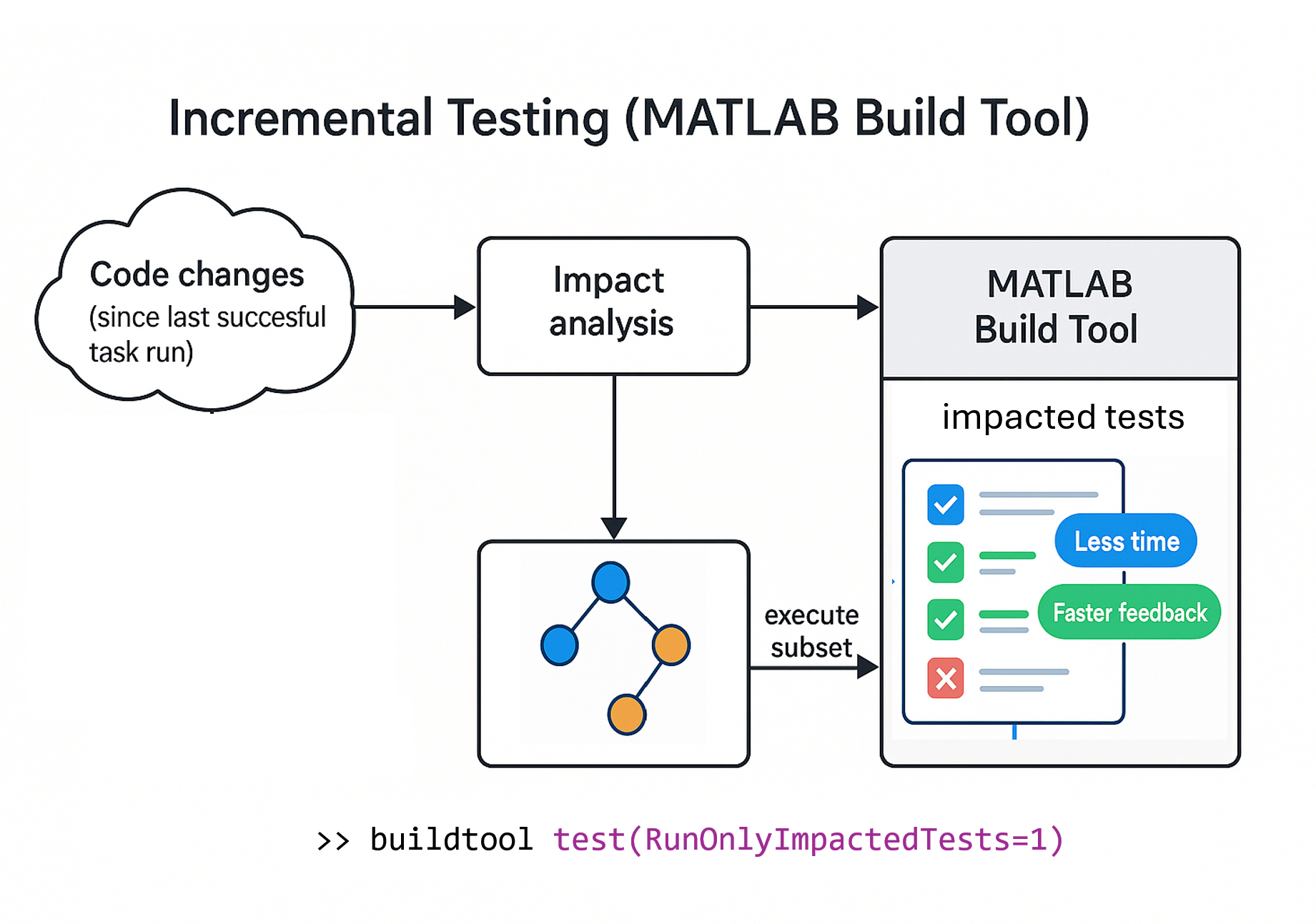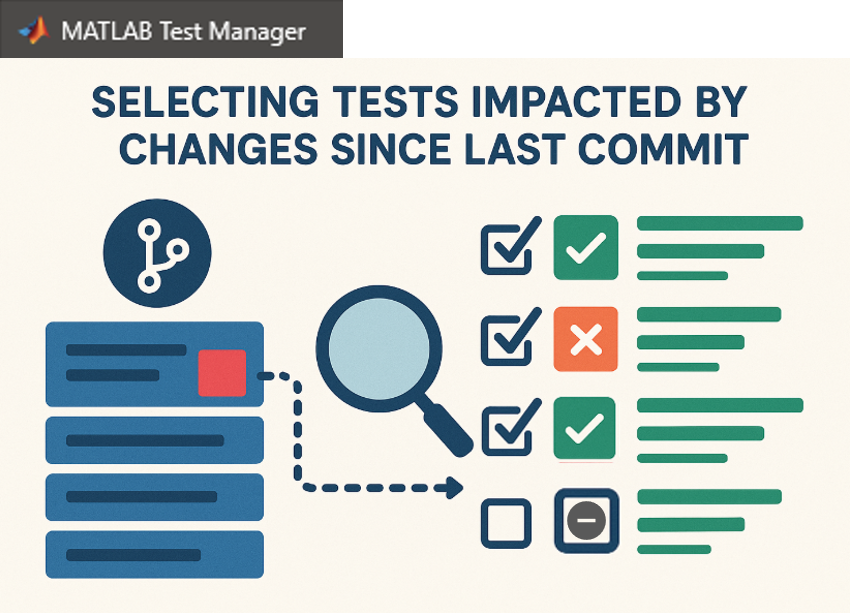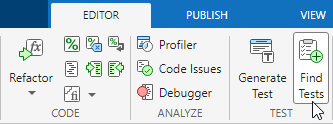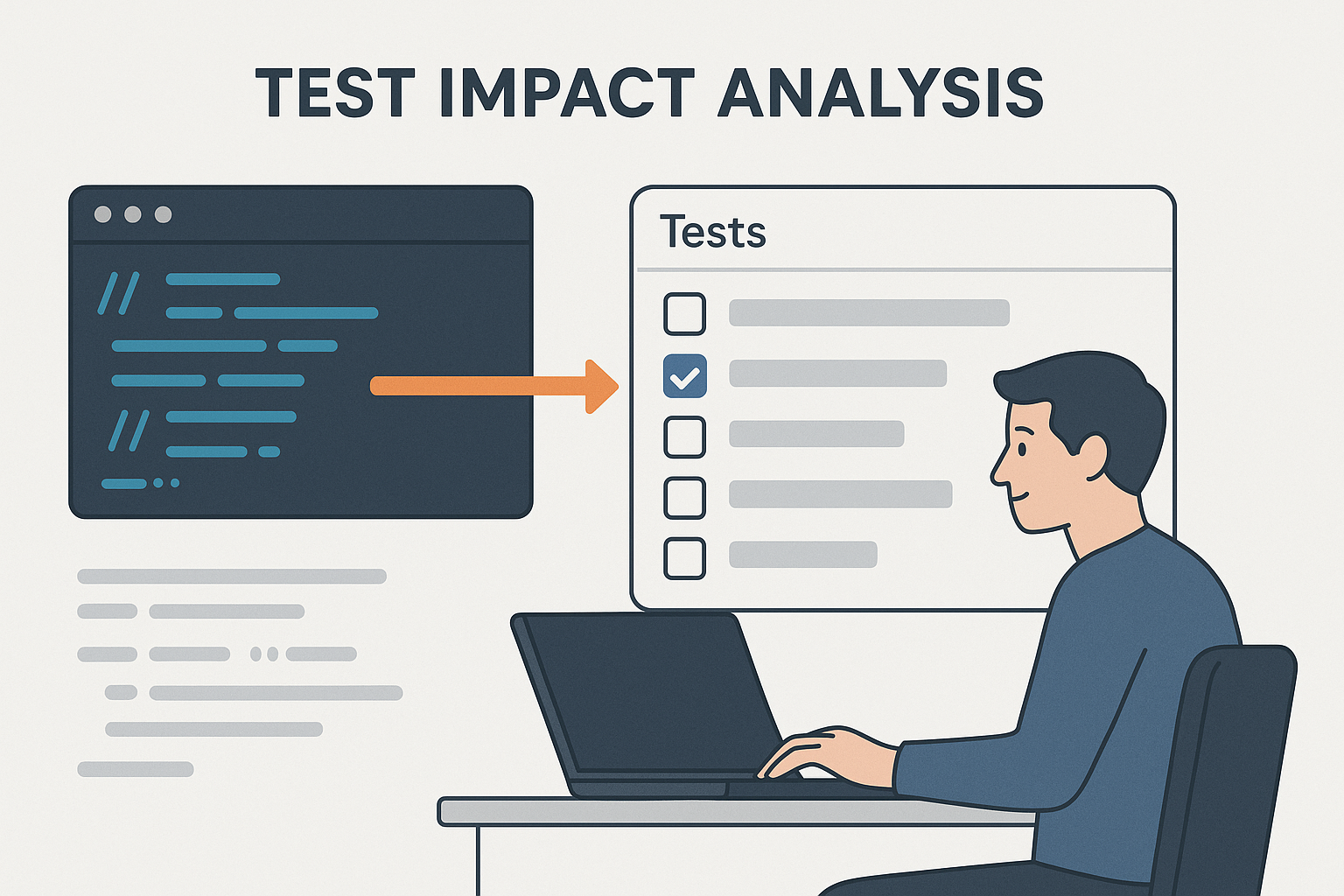
Alright! I'm back after a mid-series break to continue our talk about incremental testing.... 更多内容 >>

Alright! I'm back after a mid-series break to continue our talk about incremental testing.... 更多内容 >>

In Part 1, we looked at how the Find Tests button in the MATLAB Toolstrip can streamline your workflow by surfacing the relevant tests for the MATLAB file you are currently editing. While that approach works great for making changes to a single file, as development progresses and you prepare to commit a batch of changes, your focus shifts from a single file towards ensuring the integrity of those whole commits. And, a quick feedback loop is key to enabling frequent and high-quality commits before pushing to your remote branch.... 更多内容 >>

Welcome back! As promised, I am here to kick things off with Part 1 of our blog series on impact-based test selection. Lezz go!... 更多内容 >>

In the fast-paced world of software development, speed and quality often feel like they're pulling us in opposite directions. On the one hand, we’re racing to deliver new features and fixes. On the... 更多内容 >>

Waiting for a computer or cluster to finish a task is about as exciting as watching paint dry. XKCD even has a comic about it. MATLAB developers often deal with heavy computational loads, often... 更多内容 >>

Remember Dory? Image Credit: Silvio Tanaka [ CC BY 2.0 ], via Wikimedia CommonsThe model of persistence in the face of difficult circumstances, the hilarious and free spirited fish of the vast ocean... 更多内容 >>

Hi folks, today I'd like to introduce ChangQing Wang. ChangQing is the lead developer on MATLAB's performance framework, and in addition to all the great performance testing features he has delivered, he has also found a really easy way to integrate performance results into Jenkins. Check it out!... 更多内容 >>

Today it is my pleasure to introduce my MathWorks colleague Anoush Najarian. Anoush is an engineering manager on the MATLAB performance team and she has been instrumental in many great projects such... 更多内容 >>

OK, I had way too much fun writing that last blog post exploring algorithmic scaling. I want to explore this a bit more with a some "real" code, and what is more real than a function to calculate the... 更多内容 >>

To scale or not to scale. That is the question. When talking about algorithmic complexity, the answer to said question is usually an important one. No matter what the constant factors are that affect your algorithm's speed, poor scaling performance severely limits the scope of the problems you can solve. How do you measure your code's runtime complexity? If you don't have a good method for this (or even if you do!) then once again the performance testing framework is on your side. I was amazed when I learned of this one weird trick to measure the complexity of my algorithms.... 更多内容 >>